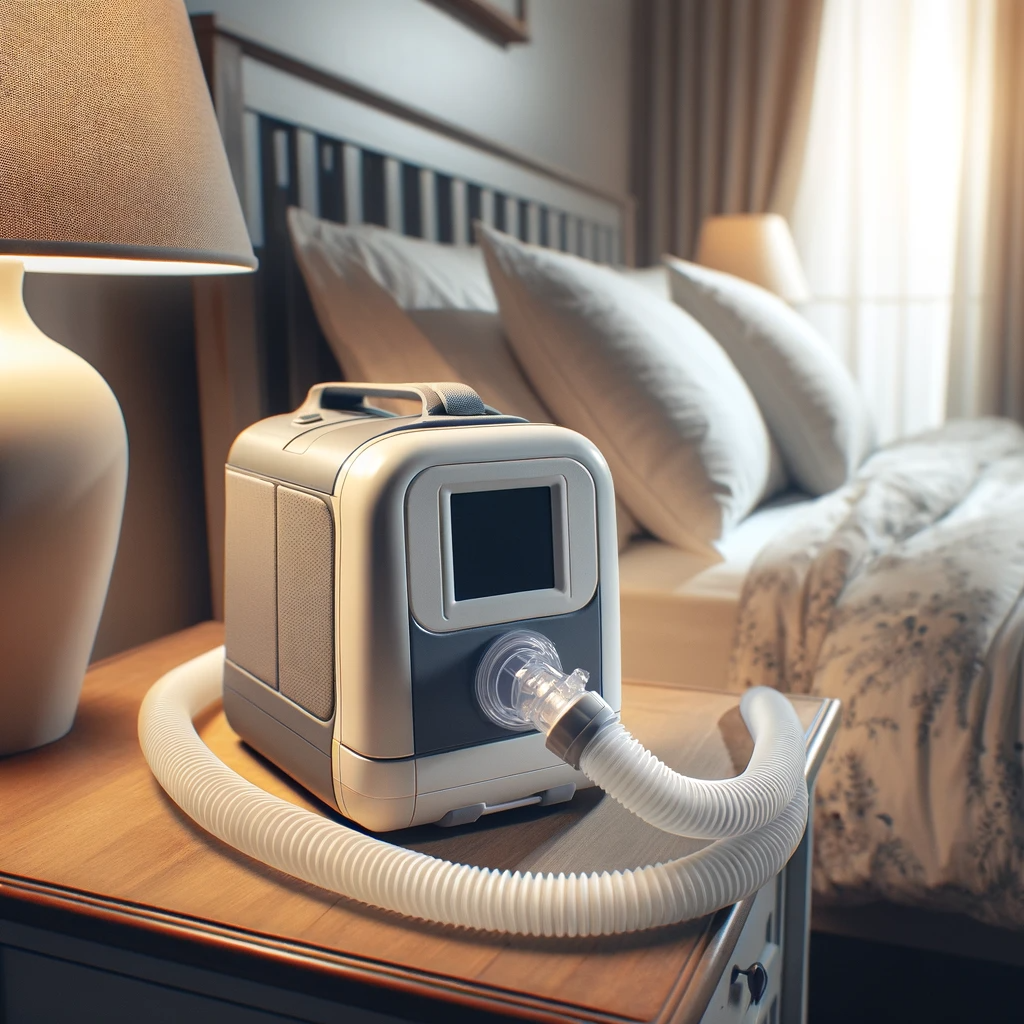Sleep apnea is a common sleep disorder that affects millions of people worldwide. It is characterized by pauses in breathing or shallow breathing during sleep, which can lead to a range of health problems. In some cases, it can even be life-threatening.
For individuals with sleep apnea, obtaining a DOT physical is an important step in maintaining their health and safety. DOT physicals are required for individuals who operate commercial vehicles, and they are designed to ensure that drivers are physically capable of safely operating their vehicles. For individuals with sleep apnea, a DOT physical can help identify any potential health issues that could impact their ability to safely operate a commercial vehicle.
Key Takeaways
- Sleep apnea is a common sleep disorder that can have serious health consequences.
- DOT physicals are an important tool for identifying potential health issues in individuals with sleep apnea who operate commercial vehicles.
- Charlotte has a number of sleep apnea DOT physical providers who can help individuals with sleep apnea obtain the care they need.
Understanding Sleep Apnea
Sleep apnea is a common sleep disorder that affects millions of people worldwide. It is characterized by the repeated interruption of breathing during sleep, which can lead to a range of health problems if left untreated.
There are two main types: obstructive sleep apnea (OSA) and central sleep apnea (CSA). OSA is the most common type, and occurs when the muscles in the throat relax and block the airway during sleep. CSA, on the other hand, is caused by a failure of the brain to send the proper signals to the muscles that control breathing.
Symptoms of sleep apnea can vary, but often include loud snoring, gasping or choking during sleep, excessive daytime sleepiness, and irritability. Other potential symptoms may include morning headaches, difficulty concentrating, and even depression.
There are a number of risk factors that can increase a person’s likelihood of developing sleep apnea, including obesity, smoking, alcohol use, and age. In addition, certain medical conditions, such as high blood pressure and diabetes, have been linked to an increased risk of sleep apnea.
If left untreated, sleep apnea can lead to a range of health problems, including high blood pressure, heart disease, stroke, and even death. Treatment options for sleep apnea may include lifestyle changes, such as weight loss and exercise, as well as the use of continuous positive airway pressure (CPAP) machines, oral appliances, and surgery in some cases.
It is important for anyone who suspects they may have sleep apnea to seek medical attention and get a proper diagnosis. With the right treatment, most people with sleep apnea can experience significant improvement in their symptoms and overall quality of life.
The Importance of DOT Physical for Sleep Apnea Patients
Sleep apnea is a common sleep disorder that affects millions of people worldwide. It is characterized by pauses in breathing during sleep, which can lead to a range of health problems if left untreated. One of the key ways to manage sleep apnea is through regular check-ups with a healthcare provider, including a DOT physical.
A DOT physical is a medical examination required by the Department of Transportation for commercial drivers. This exam helps to ensure that drivers are physically fit to operate commercial vehicles safely. For sleep apnea patients, a DOT physical is especially important because it can help to identify any potential health risks that could impact their ability to drive safely.
During a DOT physical, the healthcare provider will evaluate the patient’s overall health, including their breathing patterns and any symptoms of sleep apnea. They may also recommend further testing, such as a sleep study, to confirm a diagnosis of sleep apnea.
If a sleep apnea diagnosis is confirmed, the healthcare provider may recommend treatment options such as continuous positive airway pressure (CPAP) therapy. This treatment involves wearing a mask over the nose and mouth during sleep to help keep the airway open.
In summary, a DOT physical is an important tool for sleep apnea patients to manage their condition and ensure safe driving. By identifying potential health risks and providing appropriate treatment, patients can reduce their risk of accidents and improve their overall quality of life.
Charlotte’s Sleep Apnea Dot Physical Providers
Charlotte is home to several providers that specialize in sleep apnea DOT physicals. These providers are knowledgeable and experienced in assessing and treating sleep apnea, as well as conducting the required DOT physicals for commercial drivers.
One such provider is the Carolina Sleep Solutions, which offers comprehensive testing and treatment services. They use state-of-the-art equipment to diagnose and provide customized treatment plans for each patient. Their team of board-certified sleep specialists also provides DOT physicals to ensure that commercial drivers meet the required standards for safe driving.
Additionally, the Charlotte Sleep Center is another reputable provider of sleep apnea dot physicals. They offer a variety of sleep testing services, including home sleep studies and in-lab sleep studies, to diagnose sleep disorders. They also provide DOT physicals to ensure that commercial drivers are in good health and meet the required standards for safe driving.
Overall, Charlotte has several providers that specialize in sleep apnea dot physicals, offering comprehensive testing and treatment services to ensure that commercial drivers are healthy and fit to drive safely on the roads.
What to Expect During a Dot Physical
When undergoing a DOT physical with sleep apnea, there are a few things to keep in mind. The purpose of the physical is to ensure that the driver is physically fit and able to safely operate a commercial vehicle. The examiner will be looking for any medical conditions that could pose a risk to the driver or others on the road.
During the physical, the examiner will take a detailed medical history and perform a physical examination. They will ask about any symptoms, such as snoring or daytime sleepiness. They may also ask about any previous treatments, such as the use of a CPAP machine.
The examiner may also perform a sleep study to determine if the driver has sleep apnea. This may involve spending the night in a sleep lab or wearing a portable sleep monitor. If the driver is diagnosed, they may be required to undergo treatment and provide proof of compliance with the treatment.
Overall, the DOT physical with sleep apnea is a routine part of the certification process for commercial drivers. It is important for drivers to be honest about any medical conditions they may have and to follow any treatment recommendations made by their examiner.
How to Prepare for a Dot Physical
Preparing for a DOT physical is essential to ensure that you pass the exam and maintain your commercial driver’s license. Here are a few tips to help you prepare for your DOT physical:
1. Get Plenty of Sleep
Getting enough sleep is crucial before your DOT physical exam. It will help you feel more alert and focused during the exam. Sleep apnea can be a disqualifying condition for commercial drivers, so it is essential to manage it if you have it.
2. Bring All Relevant Medical Records
Bring all relevant medical records to your DOT physical exam. This includes any previous sleep studies, doctor’s notes, or medication lists. This information will help the medical examiner determine if you are fit to drive.
3. Stay Hydrated
Drinking plenty of water before your DOT physical exam will help you stay hydrated and alert. It will also make it easier for the medical examiner to draw blood or take a urine sample if necessary.
4. Avoid Stimulants
Avoid consuming any stimulants before your DOT physical exam. This includes caffeine, nicotine, and energy drinks. Stimulants can raise your blood pressure and heart rate, which could affect your exam results.
5. Wear Comfortable Clothing
Wear comfortable clothing to your DOT physical exam. This will help you feel more relaxed during the exam. Avoid wearing tight-fitting clothing that could restrict your movement or blood flow.
By following these tips, you can help ensure that you pass your DOT physical exam with flying colors and maintain your commercial driver’s license.
Frequently Asked Questions
Where can I send my DOT medical card?
You can send your DOT medical card to the North Carolina Division of Motor Vehicles. The address is typically listed on the back of your card.
What does a NC DOT physical consist of?
A North Carolina DOT physical typically consists of a medical examination, vision test, hearing test, and urine test. The medical examination will include a review of your medical history, as well as an evaluation of your current health status.
Where can I submit my DOT physical?
You can submit your DOT physical to the North Carolina Division of Motor Vehicles. The address is typically listed on the back of your medical card.
What are the requirements for passing a DOT physical for sleep apnea?
In order to pass a DOT physical with sleep apnea, you must meet certain requirements. These may include having a diagnosis, undergoing treatment for the condition, and demonstrating compliance with treatment. The specific requirements may vary depending on the severity of your sleep apnea and other factors.
Can sleep apnea disqualify me from passing a DOT physical?
Sleep apnea alone is not an automatic disqualifier for passing a Department of Transportation (DOT) physical. However, it’s crucial to be aware that if your sleep apnea is severe and not effectively managed, it can significantly affect your ability to safely operate a commercial vehicle. Additionally, non-compliance with treatment can lead to either failure of the DOT physical or result in a shortened duration of your medical certificate, requiring more frequent evaluations to prove ongoing compliance and management of the condition.
What is the minimum CPAP usage required for passing a DOT physical?
To successfully pass a Department of Transportation (DOT) physical when diagnosed, it is essential to demonstrate adherence to your prescribed Continuous Positive Airway Pressure (CPAP) therapy. The minimum standard for CPAP usage, as set by the DOT guidelines, is a compliance rate of at least 70%. This means you need to use your CPAP machine for the recommended duration, typically during sleep, on at least 70% of nights.
In addition to showing consistent CPAP use, you must also provide evidence that your sleep apnea is being effectively controlled through this treatment. This often involves sharing data from your CPAP machine, which records usage patterns and efficacy, with your medical examiner.

